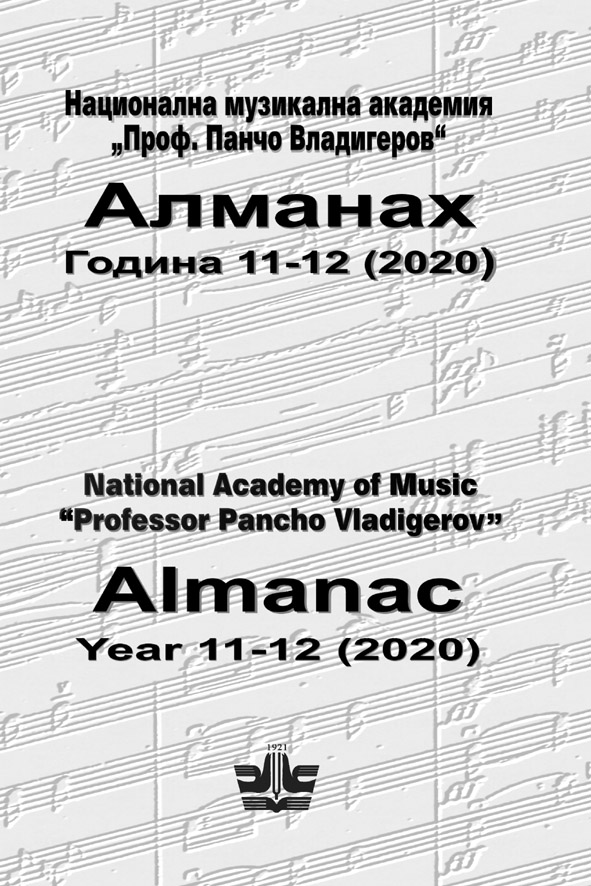Между научно осмисляне и инстинктивно музициране: слуховият анализ като близък до практиката синтез на музикална теория и интерпретация
Poised Between Analytical Investigation and Intuitive Music Making: Can Perceptual Analysis Be Seen As a Practice-Oriented Synthesis of Music Theory and Interpretation?
Author(s): Violaine De LarminatSubject(s): Fine Arts / Performing Arts, Music
Published by: Издателство НМА „Проф. Панчо Владигеров”
Keywords: Analysis; Music-Theory and Interpretation; Music-Perception; Memory – Time-Perception – Dating; Analysis from lyrics-related music
Summary/Abstract: In contrast to comprehensive musical analysis, understood as a scientific investigation of primary sources and historical and sociological contexts surrounding the genesis of a piece, as well as a comparison of different pieces by the same composer and thus easily definable as research, perceptual analysis is informed solely by the listener’s own culture, memory retention, aural skills, and ability to concentrate and thereby shifts the emphasis to perception. With the special field of reception theory functioning as a backdrop, perceptual analysis ensures the listener a direct encounter with the acoustic realities of a piece and a direct musical experience (without the deviation presented by the middleman “score”). It is this direct aspect of perceptual analysis which brings it in close relationship with performance practice. As Gérard Grisey once humorously remarked “Do not confuse the map with the territory!” When confined to relatively short pieces (dealing with a tetralogy is100unfortunately out of the question…), and using a particular recording or interpretation, which, in itself constitutes an analysis of the piece at hand, perceptual analysis has proven an excellent method for cultivating organized thinking and listening, as well as for providing an efficient means of aiding memory. Far removed from first impressions or superficial auditory impressions, perceptual analysis offers a learning tool for investigating the technical and musical means utilized by a composer in creating a piece. Further, it is capable of inducing a profound process of reflection characterized by an integrative synthesis of theoretical, historical, stylistic, aesthetic, and general cultural knowledge. Utilizing examples of perceptual analyses made in a classroom setting, attention is given to the following specific aspects and problems associated with perceptual analysis and, in addition, to explaining their significance for the broader musical practice: the importance of memory and the strong connection between the expected and unexpected while listening, the difficulty of attributing a piece of music to a particular stylistic epoch (particularly when dealing with 20th century pieces), the cognitive perception of time while actively listening and the correct classification of periods and repetitions within a formal whole, the importance of formal analysis in creating choices for interpretation, and the relationship between conscious ratiocinative recognition of formal structures and tonal organization principals and perceiving them intuitively.
Journal: Алманах - Национална музикална академия „Проф. Панчо Владигеров“
- Issue Year: 2020
- Issue No: 11-12
- Page Range: 116-131
- Page Count: 16
- Language: Bulgarian

